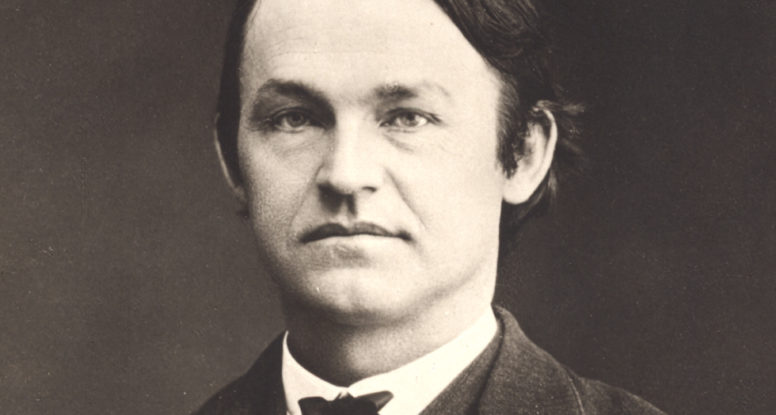
Pontus Wikner
1837-1888.
Philosopher, author.
Pontus Wikner was born in a poor crofter's home in Valbo-Ryrs parish in Dalsland.
He came to Uppsala in 1856, where he was permanently influenced by neo-evangelicalism and by Rydberg and Geijer.
As a disciple of the philosopher Christopher Jacob Boström, Wikner initially developed Boström's ideas, and later subjected them to criticism in terms of philosophy of religion and epistemology. Against Boström's philosophy, which was based on God as the absolute reason, Wikner placed an image of God characterized by holy will and saw religion as an I-Thou relationship.
Between 1863-1884 Wikner was associate professor of theoretical philosophy in Uppsala and became a lecturer in theology and Hebrew at the Högre allmänna läroverket in Uppsala in 1873, and professor of philosophy and aesthetics in Kristiania (Oslo) in 1884.
In his most widely read work, Tankar och frågor inför Människones Son (1872; Thoughts and Questions for the Son of Man ), Wikner took a personal stand in the Christological battles of his day. He wanted to combine a biblically inspired revivalist piety with a culturally open humanism, and he was supported in Christian circles, especially in the Young Church and the Association for Christian Humanism.
When Pontus Wikner died in Oslo after a life marked by illness and personal crises, his remains were brought to Uppsala by the Student Union. A large number of students followed the remains to the grave.
More than 80 years (1971) after Wikner's death, his notes were published, in which he describes his homosexual orientation and the suffering it caused him.
Wikner also became an inspiration at the time when the modern gay movement emerged in Sweden in the 1970s; a movement that developed and today can be called the LGBTI movement.
Burial site: 0121-1085
Image description: Pontus Wikner, ca 1850-1888 Photo: Unknown photographer / UUBThe image is cropped]
Click here for an uncropped image
